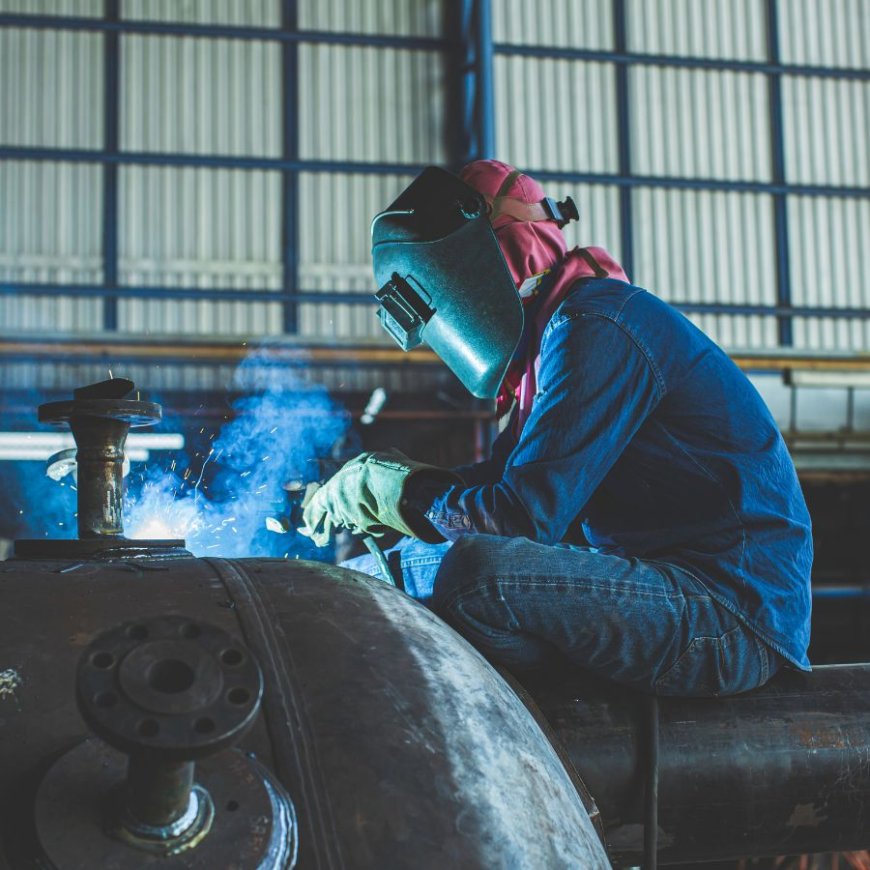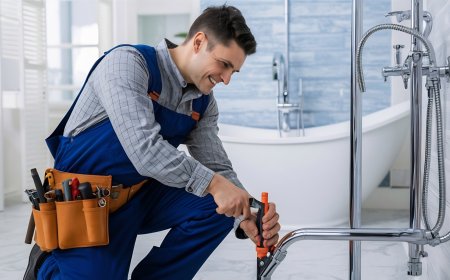Do Onsite Welding Services in Melbourne Meet Australian Standards?
Discover whether onsite welding services in Melbourne comply with Australian Standards. Learn about certifications, quality measures, safety protocols, and tips to choose a compliant welder for your project.

Welding is the backbone of structural integrity in modern construction, manufacturing, and metalworking. In a bustling city like Melbourne, where infrastructure and innovation meet daily, onsite welding services play a pivotal role. But an important question looms: Do onsite welding services in Melbourne meet Australian Standards? Let’s dive deep into this critical topic that affects safety, compliance, and your bottom line.
Understanding Onsite Welding in Melbourne
What Is Onsite Welding?
Onsite welding, also known as mobile or field welding, refers to the practice of performing welding operations directly at the project location instead of a fixed fabrication workshop. This method is often used in construction sites, residential installations, commercial buildings, and industrial facilities. Whether it's repairing structural beams or assembling pipe systems, onsite welding brings the solution directly to where it’s needed.
Types of Onsite Welding Techniques
Melbourne-based welding companies typically offer a variety of techniques, including:
-
MIG (Metal Inert Gas) Welding: Ideal for light to medium fabrication.
-
TIG (Tungsten Inert Gas) Welding: Known for precision and used in high-quality finishes.
-
Stick Welding (SMAW): Favored in outdoor and rugged environments.
-
Flux-Cored Arc Welding (FCAW): Suitable for high-volume and heavy-duty tasks.
Modern mobile welding units in Melbourne are often equipped with generators, shielding gas, and quality tools to ensure consistent results regardless of the worksite.
The Australian Welding Standards Explained
Key Standards That Apply
Australia has a comprehensive set of standards that regulate welding practices to ensure quality and safety. Here are the most relevant ones:
-
AS/NZS 1554 – Governs structural steel welding. It covers welding design, inspection, and performance criteria.
-
AS/NZS ISO 3834 – Details quality requirements for fusion welding.
-
AS/NZS 1796 – Concerns the certification of welders through practical and theoretical assessments.
-
AS/NZS 2214 – Outlines the qualification of welding supervisors.
These standards ensure that welding work holds up under real-world pressures and environmental conditions.
Who Sets and Enforces These Standards?
-
Standards Australia: The nation’s peak non-government standards organization.
-
WorkSafe Victoria: Regulates workplace health and safety, including welding-related practices.
-
Weld Australia: Offers guidance, certification, and advocacy for welders and companies.
Compliance isn't optional; it’s a legal and ethical obligation.
How Melbourne Welding Services Stay Compliant
Certification and Licensing of Welders
Qualified welders in Melbourne must be trained and certified according to AS/NZS standards. Typically, this includes:
-
Welding certificates (e.g., Certificate III in Engineering - Fabrication Trade)
-
Third-party assessments for specific procedures (such as pipe welding or pressure vessels)
-
Maintenance of ongoing training records
Equipment and Material Standards
Compliant onsite welders use machinery that meets safety standards and is subject to routine calibration and maintenance. Consumables like electrodes and shielding gases must also be traceable and approved.
Welding Procedures and Documentation
Professional welders rely on detailed plans and documented procedures to maintain consistency and meet standards:
-
Welding Procedure Specifications (WPS): Provide step-by-step instructions
-
Procedure Qualification Records (PQR): Confirm WPS validity through tests
-
Inspection Test Plans (ITPs): Define checkpoints for quality control
These documents are vital for both compliance and audit trails.
Common Compliance Issues and Risks
What Happens When Standards Are Ignored?
Ignoring standards can have catastrophic outcomes:
-
Structural Failures: Poor welds can lead to building collapses.
-
Legal Penalties: Fines, stop-work orders, and project delays.
-
Void Insurance Claims: Most insurers won’t cover non-compliant work.
-
Reputational Damage: Contractors may lose future business opportunities.
Warning Signs of Non-Compliant Welders
-
Incomplete or missing documentation
-
No verifiable certifications
-
Lack of PPE and safety awareness
-
Inconsistent or poor-quality welding finishes
Identifying these red flags early can save thousands of dollars and possibly lives.
How to Choose a Standards-Compliant Welding Service in Melbourne
Questions to Ask Before Hiring
-
Are your welders certified to AS/NZS standards?
-
Do you provide WPS and PQR documentation?
-
How often is your equipment tested?
-
Who performs your inspections?
-
Do you have liability insurance?
A reputable welding company will answer these questions confidently and transparently.
Red Flags to Watch Out For
-
Lack of digital or paper documentation
-
Unwillingness to allow third-party inspection
-
Minimal or no online presence or reviews
-
Excessively low pricing (which may indicate cost-cutting)
Role of Audits and Quality Assurance Checks
Third-party audits and quality checks provide added peace of mind:
-
Visual Inspections
-
Non-Destructive Testing (NDT) such as ultrasonic or radiographic methods
-
Weld traceability reports
These practices ensure that every weld meets technical and legal expectations.
Benefits of Hiring Standard-Compliant Onsite Welders
-
Enhanced Safety: Protects workers and occupants
-
Legal Compliance: Avoids penalties and shutdowns
-
Durability: High-quality welds last longer
-
Reputation: Reliable work builds client trust
-
Cost-Efficiency: Reduces rework and insurance premiums
Hiring a compliant welder is an investment in long-term success.
The Future of Onsite Welding and Regulatory Compliance
Emerging Technologies Enhancing Compliance
-
AI-driven inspection tools
-
Cloud-based documentation
-
Portable welding robots
These innovations are making compliance faster, easier, and more reliable.
Environmental and Sustainability Standards
New trends include:
-
Eco-friendly welding gases
-
Recyclable consumables
-
Noise and emission reduction initiatives
Future compliance won’t just be about safety—it will include sustainability as well.
Conclusion: Weld with Confidence in Melbourne
In a thriving construction and manufacturing hub like Melbourne, onsite welding services are indispensable. However, with that demand comes the necessity for quality assurance and compliance. By adhering to Australian Standards such as AS/NZS 1554 and AS/NZS ISO 3834, welders not only produce structurally sound work but also safeguard people and property.
Whether you're a homeowner, project manager, or builder, never compromise on welding standards. Verify credentials, demand documentation, and prioritize quality over cost. Your project deserves nothing less.
Frequently Asked Questions (FAQs)
Q1: What are the most important welding standards in Australia?
The most crucial ones include AS/NZS 1554 (structural welding), AS/NZS ISO 3834 (fusion welding quality), and AS/NZS 1796 (welder certification).
Q2: Do mobile or onsite welders in Melbourne need a license?
Yes. They must possess certifications aligned with the AS/NZS standards and may also require High-Risk Work Licenses depending on job scope.
Q3: How can I verify if a welder follows Australian Standards?
Request their WPS, certifications, and PQR. You can also look up their company credentials via industry associations or licensing bodies.
Q4: Can a project fail if welding isn't up to standard?
Yes. Substandard welding can lead to structural failures, project delays, legal liability, and insurance issues.
Q5: Are inspections mandatory for onsite welding jobs?
While not always legally required, inspections are strongly advised—especially for commercial and industrial jobs—to ensure full compliance.









































































